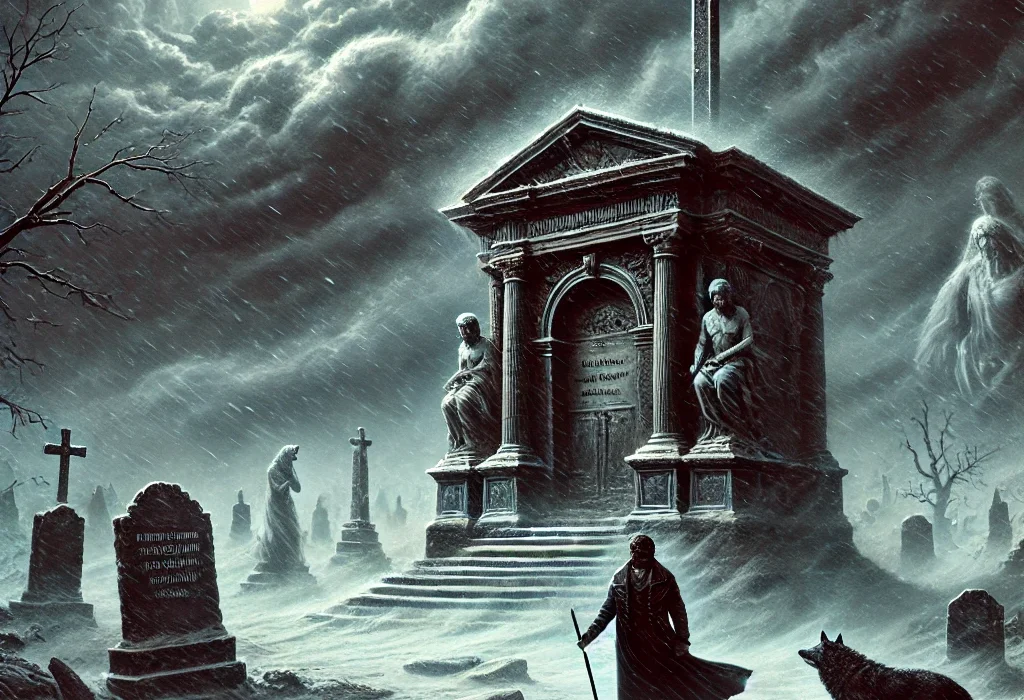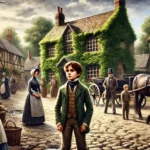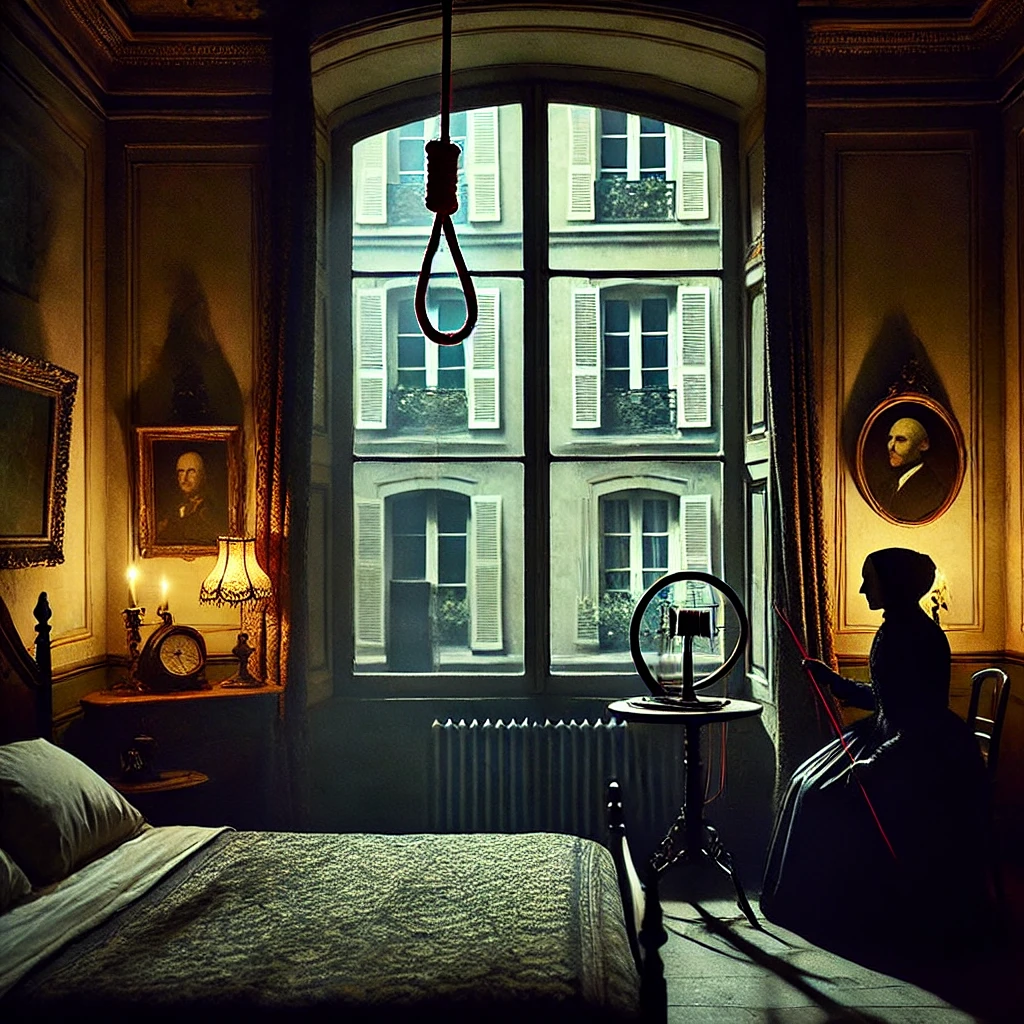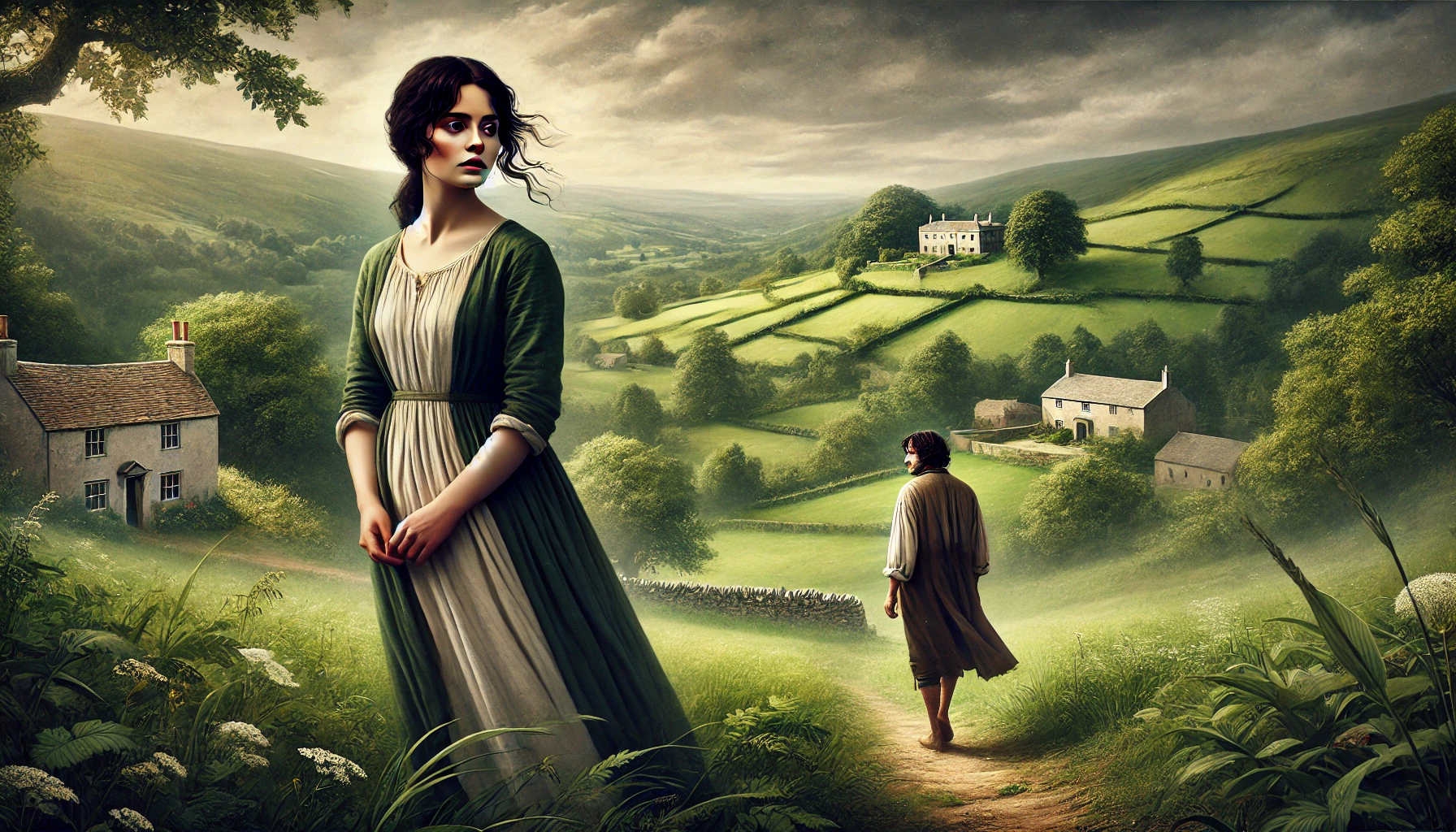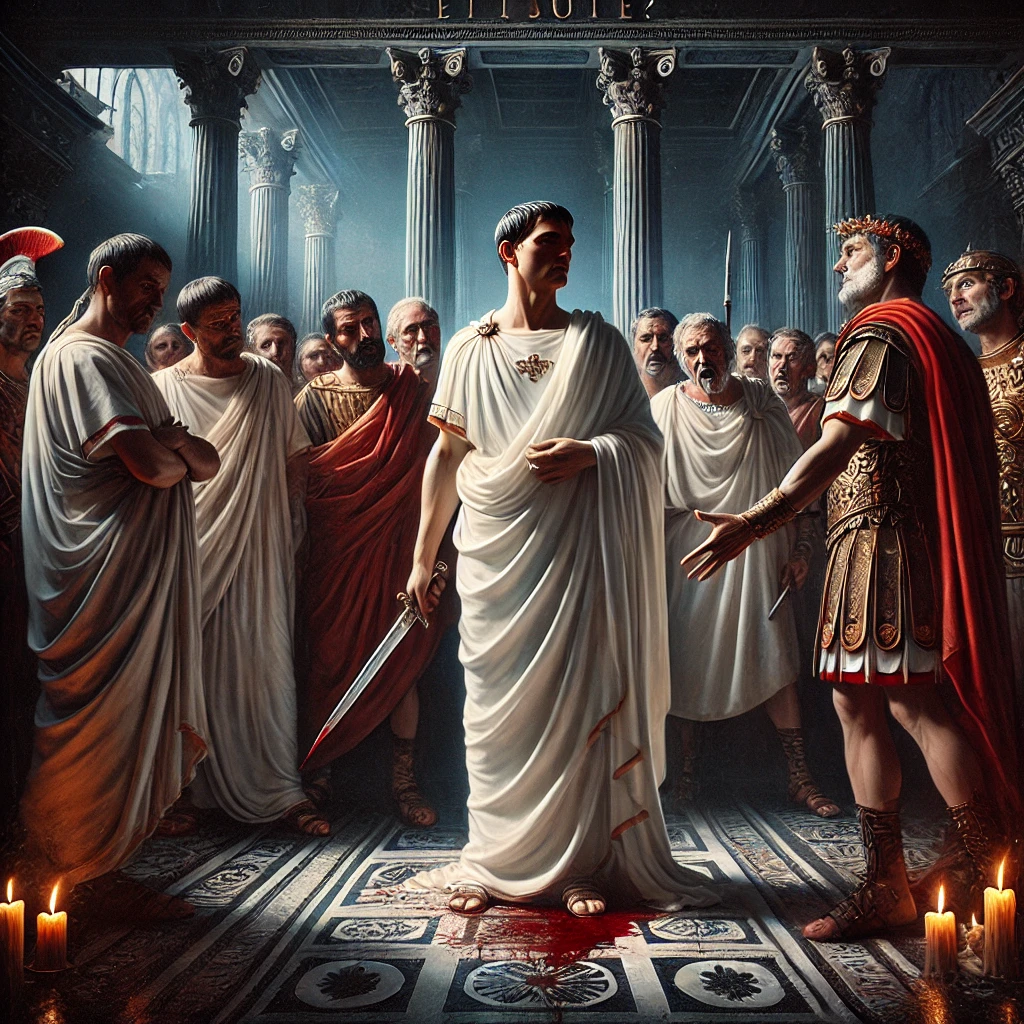Dracula’s Guest is a horror short story by Bram Stoker, first published in 1914 as part of a posthumous collection. It was intended as a prologue to Stoker’s famous novel Dracula (1897) but was removed from the original manuscript. The story shares a gothic atmosphere and unsettling supernatural themes similar to Dracula, exploring an eerie encounter in a desolate European landscape.
Plot Summary
The sun shone brightly over Munich as the narrator embarked on a pleasant journey, his destination unknown but his spirit adventurous. As the horses set off, Herr Delbruck, the maître d’hôtel, warned the narrator’s coachman, Johann, to return before nightfall, hinting at something ominous in the air. Johann, visibly uneasy, nodded, acknowledging Delbruck’s unspoken concern. When asked by the narrator what made the night special, Johann reluctantly replied, “Walpurgis Nacht,” crossing himself in superstition. Despite Johann’s reservations, the journey continued, with the horses growing increasingly restless as the wind carried a subtle chill.
Soon, the narrator’s curiosity got the better of him when he spotted a small, winding road that seemed seldom traveled. Despite Johann’s frantic protests and growing fear, the narrator insisted they take this detour. Johann’s face paled as he tried to explain, half in German, half in broken English, about the unholiness of the path. His warnings fell on deaf ears as the narrator, unshaken by superstitions, dismissed the coachman’s fears as baseless. Annoyed but resigned, Johann stopped the carriage. As the narrator took his walking stick and decided to continue alone, Johann drove off reluctantly, casting one last anxious glance over his shoulder.
As the narrator walked, the once clear sky darkened, and an eerie silence took over. The gentle breeze gave way to a biting cold wind, and snowflakes began to fall. The path led him deeper into a desolate valley surrounded by ancient, towering trees. His mind, initially distracted by the beauty of the scenery, slowly registered the overwhelming isolation. The world around him seemed devoid of life. Clouds thickened above, blotting out the sun, and the snow intensified. Soon, he realized he had wandered far from the beaten path.
A strange cry pierced the air—a sound resembling a wolf’s howl. He recalled Johann’s earlier remark about wolves, though the coachman had claimed they hadn’t been seen near the city for years. Yet now, the wind carried their unmistakable howls, echoing through the barren wilderness. Darkness enveloped him as the snowstorm thickened, and soon he found himself struggling through knee-deep drifts, blinded by the swirling snow.
Seeking shelter, he spotted the faint outline of trees ahead and stumbled toward them. The storm raged, and the howls grew louder, but the sight of the forest offered some hope. As he approached, he saw that the trees enclosed an ancient graveyard, long forgotten, with a massive marble tomb at its center. The moonlight broke through the clouds briefly, illuminating the tomb, and he saw an inscription carved into the stone: “Countess Dolingen of Gratz in Styria Sought and Found Death 1801.”
A sense of foreboding crept into his mind. This place, where he now sought refuge, seemed touched by something malevolent. As the storm raged around him, the tomb offered the only shelter from the biting cold and the relentless hail. He huddled against its doorway, desperate for warmth, when suddenly the door creaked open. Inside, the faint glow of moonlight revealed the figure of a woman lying on a bier, her lips red, her face unnaturally lifelike. His heart raced, a cold terror gripping him, but before he could react, a violent gust of wind threw him backward. He was flung into the snow, the air filled with the deafening crash of thunder.
As he lay dazed, the storm’s fury reached its peak, lightning illuminating the sky. A blinding flash struck the iron stake that pierced the tomb’s roof, followed by a bone-rattling explosion. In that instant, he saw the woman within the tomb rise, her face contorted in pain, her scream lost in the roar of the tempest. Then, just as quickly as it had begun, the vision vanished. The marble tomb shattered, and darkness enveloped him once again.
Suddenly, he felt the weight of something massive pressing down on his chest. He could not move, his body frozen in the icy grip of terror. The rasping sound of breath reached his ears, and through barely open eyes, he saw the glowing, malevolent eyes of a giant wolf. Its hot breath seared his skin, and its teeth gleamed in the dim light. The beast began to lick his throat, its rough tongue scraping his flesh, but he dared not move. Panic surged through him, and for a moment, all was lost in a fog of terror.
Voices broke through the darkness—distant but growing nearer. The wolf growled, its ears twitching at the sound of approaching men. Torchlight flickered through the trees as a group of soldiers on horseback charged toward him. The wolf snarled, backing away, before vanishing into the graveyard. The soldiers, now close enough for the narrator to see, dismounted and rushed to his aid. One of them bent down, checking his pulse, and declared that he was still alive. With careful hands, they lifted him and poured brandy down his throat, bringing warmth to his frozen limbs.
As he regained some strength, the soldiers muttered to one another, their eyes darting nervously toward the graveyard. One of them remarked on the strange events of the night, noting the unnatural howl of the wolf and the broken tomb. They agreed to leave quickly, not wanting to linger on such a cursed night. The narrator, still too weak to speak, could only listen as they hoisted him onto a horse and rode swiftly away from the haunted scene.
When they reached the safety of Munich, Herr Delbruck greeted him with visible relief. He had organized the search party after Johann returned in a panic with the wrecked carriage. But what unnerved the narrator the most was the telegram Delbruck showed him—sent by Count Dracula himself, warning the innkeeper to spare no effort in ensuring the narrator’s safety. The room seemed to spin as he read the message. In that moment, he realized that unseen forces had been watching over him, pulling him back from the brink of death, but at what cost?
Main Characters
- The Narrator (Unnamed Englishman): The protagonist of the story, he is an adventurous English traveler whose curiosity leads him into a dangerous situation. His pride and determination to explore the unknown push him to ignore warnings, placing him in supernatural peril.
- Johann: The cautious coachman who tries to dissuade the narrator from venturing into dangerous territory. He is superstitious and fearful, believing in the local legends and warnings about Walpurgis Night.
- Count Dracula (inferred): Although he never appears directly, the ominous presence of Count Dracula looms over the story through a telegram sent to protect the narrator. Dracula’s concern for the narrator suggests he plays a larger role in this mysterious adventure.
Theme
- Supernatural Dread: The story brims with eerie supernatural elements, from the ghostly atmosphere of the deserted village to the suggestion of the undead. This reflects gothic horror’s fascination with the unknown and the unnatural.
- Curiosity vs. Caution: The narrator’s reckless curiosity clashes with Johann’s deep-rooted caution, illustrating a common theme in horror— the dangers of ignoring local wisdom and venturing into forbidden places.
- Isolation and Helplessness: As the narrator becomes lost in the bleak landscape, the theme of isolation is amplified by the rising storm and supernatural threats. The feeling of helplessness in the face of unknown forces heightens the tension.
- Walpurgis Night: This motif, a reference to European folklore, ties the story to legends of witches, spirits, and the dead rising from their graves. The night serves as a symbol of unchecked supernatural chaos.
Writing Style and Tone
Bram Stoker’s writing in Dracula’s Guest is characterized by vivid descriptions that evoke a sense of foreboding and suspense. He masterfully builds an atmosphere of dread through his portrayal of the bleak, desolate landscape and the increasingly ominous events. The narrative is immersive, with detailed accounts of the cold, the storm, and the eerie village, drawing readers into the narrator’s unnerving experience.
The tone of the story is dark and suspenseful, with a mounting sense of danger as the narrator delves deeper into unknown territory. Stoker effectively uses the natural environment—clouds, snow, and storm—as metaphors for the supernatural threat lurking just beyond the edge of perception. His use of language imbues the story with a gothic and mysterious aura, making the reader feel the oppressive weight of the unseen forces at work.
We hope this summary has sparked your interest and would appreciate you following Celsius 233 on social media:
There’s a treasure trove of other fascinating book summaries waiting for you. Check out our collection of stories that inspire, thrill, and provoke thought, just like this one by checking out the Book Shelf or the Library
Remember, while our summaries capture the essence, they can never replace the full experience of reading the book. If this summary intrigued you, consider diving into the complete story – buy the book and immerse yourself in the author’s original work.
If you want to request a book summary, click here.
When Saurabh is not working/watching football/reading books/traveling, you can reach him via Twitter/X, LinkedIn, or Threads
Restart reading!


